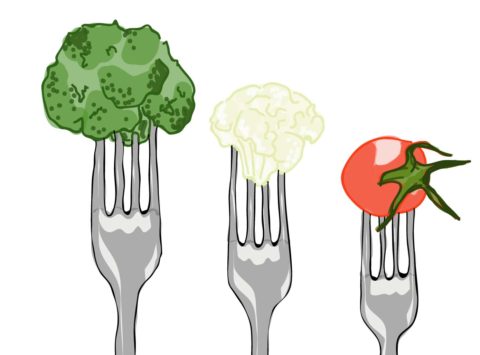Food insecurity has steadily made its way to the forefront of global issues, prompting many to reconsider not only food consumption, but the very nature of how their food is supplied.
Solutions to these problems will be up for discussion at the University of Saskatchewan as it hosts a panel of three faculty members, each coming from their own area of expertise on food insecurity. The discussion is set to be held at Louis’ Pub on Feb. 1 from 5 to 6:30 p.m.
The panel will consist of a structured talk on the subject, after which the floor will be open to anyone who wishes to pose a question to the panel. This is an opportunity to discuss any topic related to food sustainability with those who work in the field. Food made with locally produced ingredients will be available during the event, and afterward there will be a chance to network with all attendees and panel members.
the event, and afterward there will be a chance to network with all attendees and panel members.
Philip Loring, assistant professor at the School of Environment and Sustainability, has a valuable knowledge of food systems to bring to the discussion.
“I have familiarity with different kinds of food systems, sustainable and not, that we’ve seen all across the world and through history. I’ve spent a lot of time looking at historical examples, Indigenous food systems [and] fisheries around the world to try to get an idea of what works and what doesn’t, regardless of where you are,” Loring said.
Grant Wood, assistant professor of plant sciences at the College of Agriculture and Bioresources, is also set to take part in the panel and spoke to what excites him the most about being a part of it.
“One of the things I find most fascinating about the university is just the youth. Having youth and being surrounded by youth because youth think differently than my generation. So I’m really looking forward to just hearing from [the youth] … because that’s what excites me the most,” Wood said.
This passion for the ideas of the younger generation is also seen in the classes Wood teaches, in which students are asked to draft a proposal that will then be used by a company or the university in order to increase food security in some way. These projects have included the rooftop garden on campus, among others.
Much like Wood, Loring believes in community-based projects and sees them as the solution to the large scale issue of food insecurity.
“The solutions for these sorts of problems really happen at the community level and food systems, and taking control of our food is one of these great examples of how we can actually, at the local level, organize and create a change to address issues like climate change and some of the other sort of global sustainability problems that we have,” Loring said.
While to some this may seem to be an unrealistic method of solving such a big problem like global food insecurity, Loring believes that small efforts can successfully come together to solve the problem.
“It’s easy to get caught up in conversations about feeding the world, and I like to push the conversation back in the direction of feeding our community and finding out how other communities feed themselves, and if we can get there, the world is fed,” Loring said.
Wood pointed out that if every private household in Saskatoon were to turn just a 10-foot square of their backyard into garden space, the city as a whole would produce six million pounds of food in a typical growing season.
While gardening and other homegrown food solutions are a way to lower food insecurity, many students simply do not have this option due to living in dorms or not having access to a garden plot. However, Loring assures students that they are still capable of playing a major role in solutions.
“Students are the biggest revenue generator here at the university, so you are actually the people in power. So if you want the university to be contributing to more sustainable systems, your voice and your values regarding that can be heard.”
—
Jack Thompson / Staff Writer
Graphic: Lesia Karalash / Graphics Editor